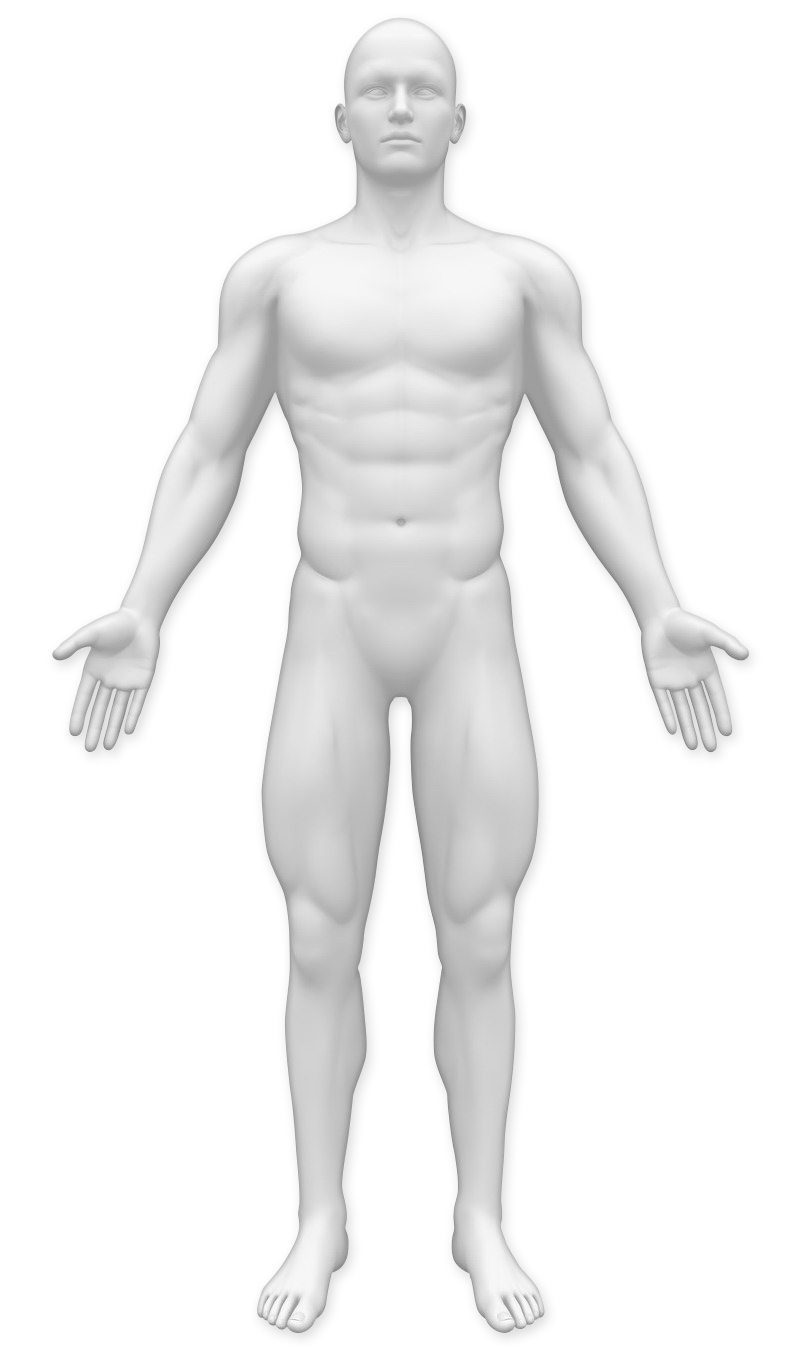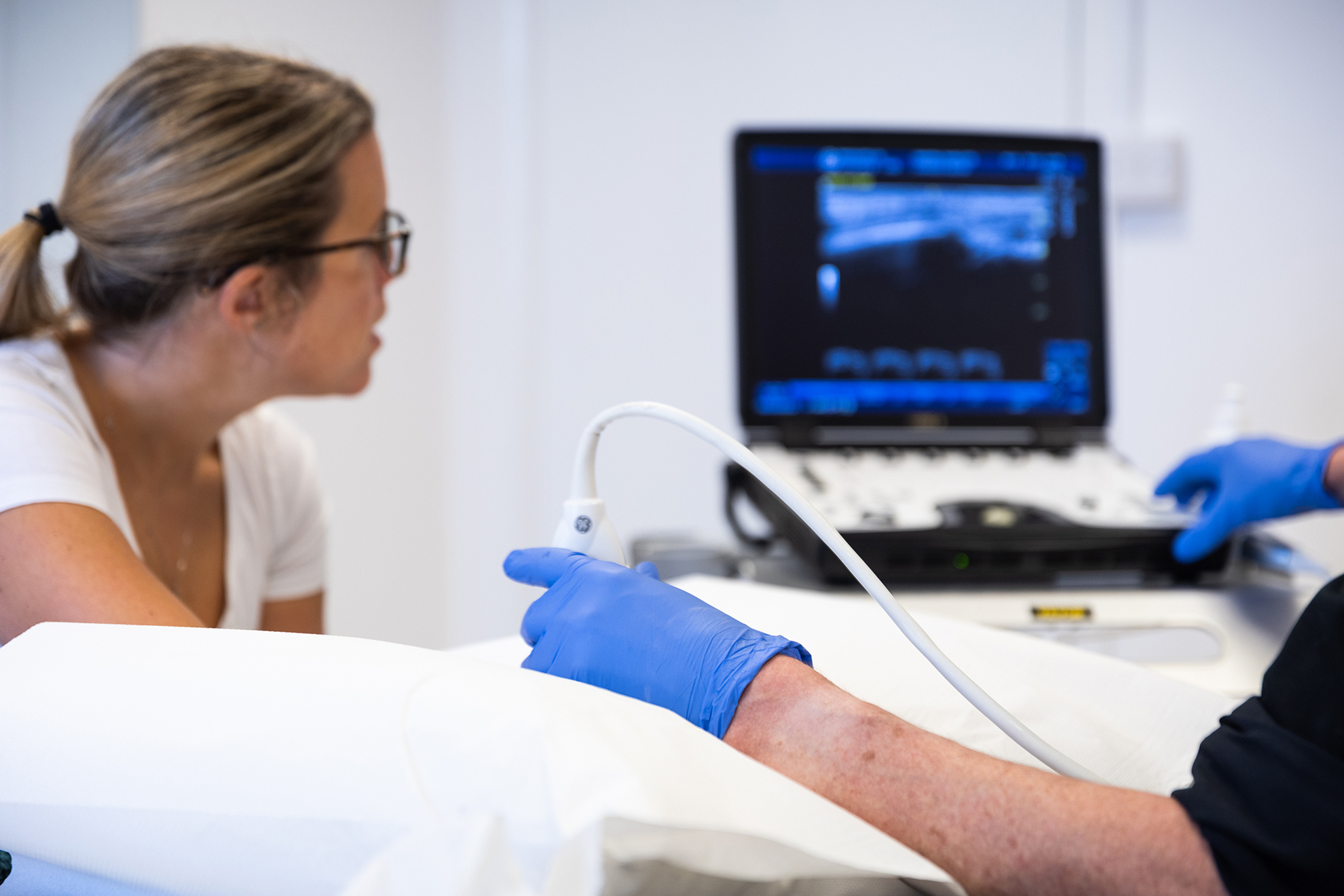
Rob Mast
Specialist Physiotherapist/ Sonographer
Rob is a specialist Advanced Practice Physiotherapist with more than 30 years experience in managing complex musculoskeletal conditions.
He uses diagnostic ultrasound as an extension of his clinical skills. He is an interventional sonographer in a busy radiology department of a central London Foundation Trust Hospital.
He is an experienced educator in musculoskeletal ultrasound. He has trained many 100s of health professionals in diagnostic ultrasound and ultrasound guided injections.
He also is an Honorary Lecturer at Brunel University on the CASE accredited Musculoskeletal Diagnostic Ultrasound PgCert program, as well on the Ultrasound Guided Injection program.

Ultrasound-Guided Injection Services
At Sonoscope we understand the cost of ultrasound guided injections can sometimes be quite daunting, especially when you discover extra fees are often attached. At Sonoscope however, we offer an all-inclusive service with no hidden fees or surprises. We are keen to provide you with a seamless service., our injection package, therefore, has no hidden charges.
Ultrasound-guided Injections we provide
Struggling to get seen for an ultrasound guided injection?
Expert musculoskeletal specialists offering fast access, accurate diagnosis, and precise pain relief, trusted by patients across.

Musculoskeletal Conditions
Treated with Cortisone shots
Ultrasound-guided injection treatments provide many patients with relief at the target site from many degenerative disease conditions as well as from soft tissue disorders and sports or accidental injuries, including:
Please note the conditions listed on the anatomical figure is not exhaustive. Please enquire if condition is not listed.
Genuine Patient Reviews
Testimonials and feedback are incredibly important to us. We are always striving to help give our clients the best possible experience whilst you are in our care.
Frequently Asked Questions
Local steroid injections can give rapid and effective reduction in pain and inflammation; however, improvements are usually temporary. As with all medicines, some people may experience side effects. The aim of this frequently asked questions page is to provide you with the information that you need to know.
Some steroids occur naturally in the human body and man-made steroids act like natural steroids to reduce inflammation. They are not the same as steroids used by bodybuilders to increase muscle size and strength. They can be taken as tablets or as an injection.
Steroids are often recommended for people with inflammatory conditions and musculoskeletal pain, such as inflammatory arthritis. They can also be used in osteoarthritis and a range of other soft tissue conditions which involved pain and/or inflammation.
A range of different steroids exist, some are shorter acting which work almost immediately but they only give short lived relief maybe a week or so. Longer acting steroid take around a week to work but can last for several months.
The clinician who will be performing your injection will choose the most appropriate steroid medicines and dose for your condition and symptoms. They will usually inject the steroid directly into the area that is inflamed, such into the joint or around the soft tissue, where the pain is felt. Most injections are quick and easy to perform.
Sometimes an ultrasound scan is used to find out more about where the inflammation is and also to deliver the injection more precisely. For safety reasons your clinician may delay your injection if you have unstable blood pressure or unstable blood sugars due to diabetes.
If you have local anaesthetic, your pain will be relieved within minutes but may wear off after an hour or two. It usually takes several days for the effect of the steroid to fully begin to work.
You may wish to arrange alternative transport home after your injection, especially if you are having local anaesthetic which can cause some numbness and make it difficult to drive. If you have any injection into the joint you should try to avoid strenuous exercise for two days afterwards. If you are having an injection around a tendon, you may be asked to avoid heavy impact and loading activities for two or three weeks.
If you find the ultrasound guided injection helpful, and other treatments unsuitable, the injection may be repeated. However, injections are most often used to provide a window of opportunity to engage in exercise and rehabilitation or whilst finding a more suitable program of treatment. Once your pain is better controlled, the need for injection should be reduced.
Most people have steroid injections without any side effects.
The risk of side effects is greater with stronger doses and longer acting steroids, such as Triamcinolone acetonide and Methoprednisolone, as they tend to be stronger and dissolve less easily in your body.



